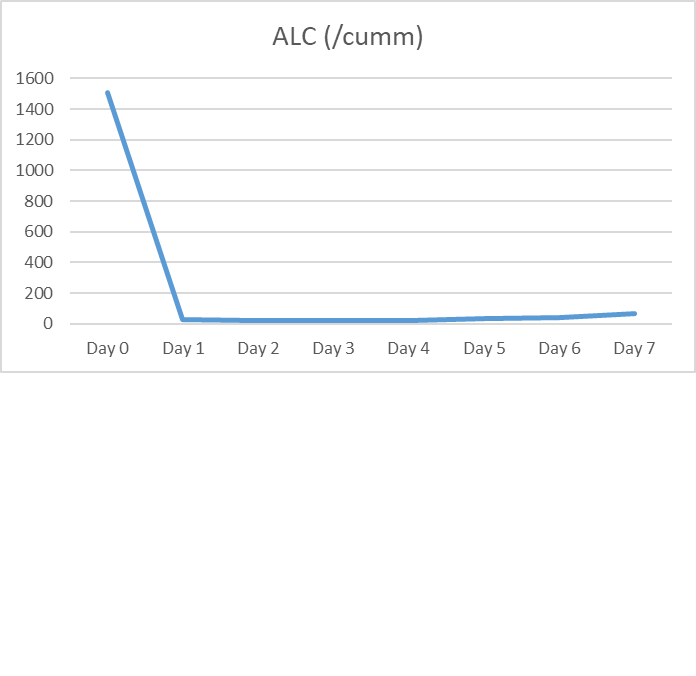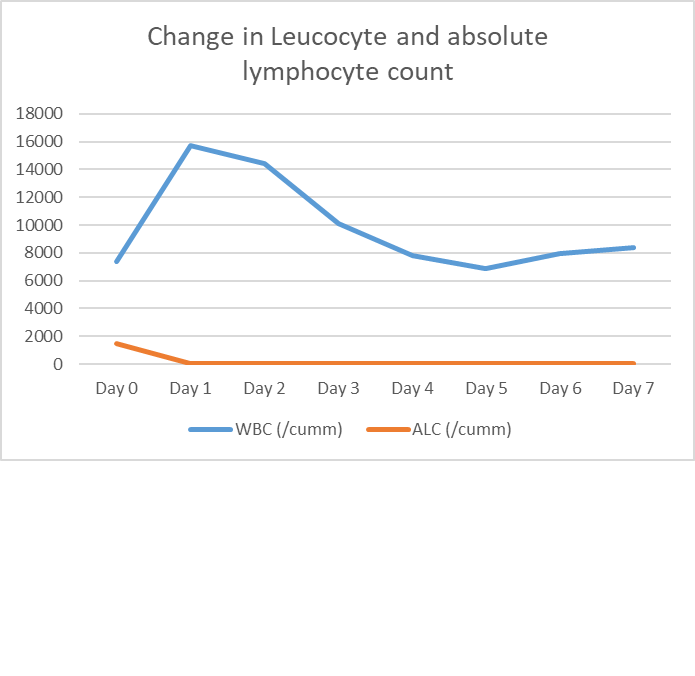Our unique experience with low dose Alemtuzumab as induction agent in renal transplantation
Cherin Champannoor1, Divya Sundar1, Milly Matthew1, Prem Kumar1, Anil Vaidya1, Georgi Abraham1.
1Nephrology, MGM healthcare , Chennai, India
Introduction: The use of induction agent in renal transplant is based as per the center or physician’s protocol. Alemtuzumab was used as in induction agent in 1998 for the first time and has been used since then as an induction agent off label. There has been no consensus on the dosage of alemtuzumab, though conventionally 30 mg single dosage has been used.
Methods: We describe our experience of using low dose alemtuzumab in 11 patients of renal transplant. All but one patient received Alemtuzumab 15 mg single dose I.V on day 0 along with methylprednisolone. One patient received 10 mg Alemtuzumab. Tacrolimus, MMF and steroid were the maintenance immunosuppressive agents. Post operatively, WBC and differential count, renal function were monitored daily.
Results: We transplanted 11 patients, 2 females and 9 males. One was a paediatric patient. The mean age of the patients was 39 (+/- 9.2). All the patients underwent live donor kidney transplant. One patient had regrafting. All the patients had their CDC and flow crossmatch done. All patients had end to side anastomosis of the renal artery with the external iliac artery and the cold ischemia time was around 22 minutes. DJ stent was placed in all patients intra-operatively. The mean absolute lymphocyte count prior to transplant was 1504 (+/- 695) /cumm and post transplant it was 30 (+/-16)/cumm and mean creatinine was 0.9 (+/-0.3) on discharge. None of the patients had any episode of rejection. 4 patients had urinary tract infection and 1 patient had wound infection which were treated successfully with antibiotics.


Conclusion: Reduced dose Alemtuzumab can be a cost effective strategy in developing countries for induction in renal transplant patients to prevent acute rejection. Infections still remain a concern when using low dose Alemtuzumab.
[1] Alemtuzumab
[2] Graft rejection
[3] Low dose
[4] Induction agent
[5] Immunosuppression
[6] Renal transplant
[7] Lymphocyte count
